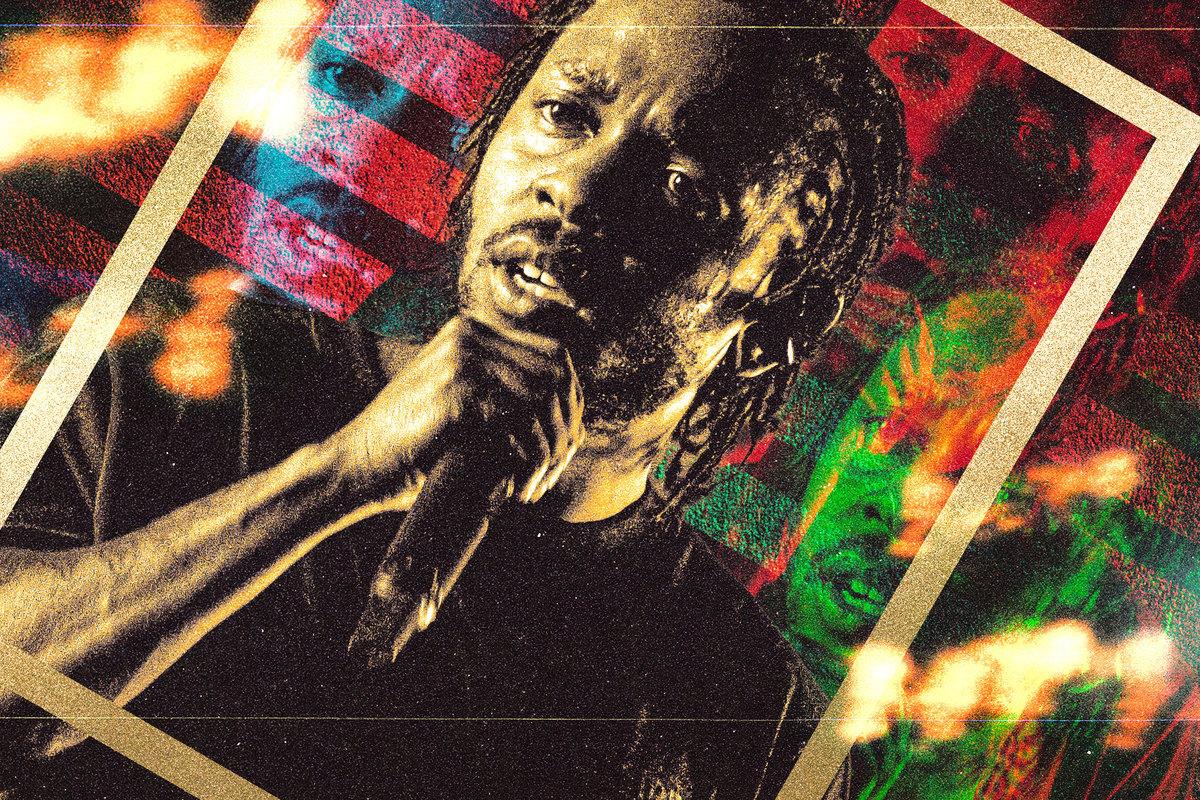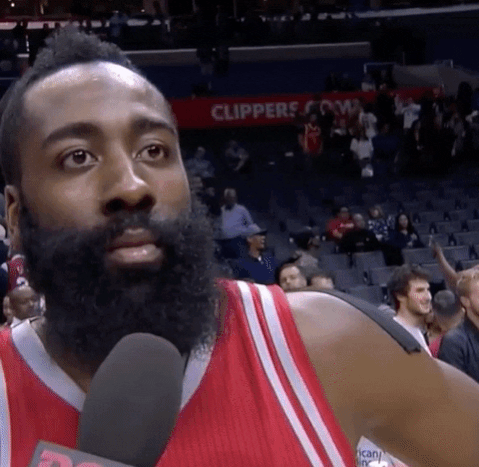The Kendrick Lamar ‘Mr. Morale & the Big Steppers’ Exit Survey
Kendrick Lamar has returned with his first studio album in five years. What are the standout songs of ‘Mr. Morale’? Where does it rank in his all-time discography? And does King Kendrick sit on the throne as the best rapper alive? Let’s discuss.
After five long years, Kendrick Lamar has returned with his first studio album since 2017’s DAMN. Expectations have been high since Kendrick initially teased the record last month, which raises all sorts of questions: Does Mr. Morale & the Big Steppers live up to the hype? Where does it rank in K-Dot’s discography? And perhaps most pertinently, is Kendrick Lamar the best rapper alive? Let’s discuss:
1. What is your tweet-length review of Mr. Morale & the Big Steppers?
Rob Harvilla: Men will literally listen to a chaotic, confounding, troubling, impossible-to-untangle-in-24-hours, and-quite-possibly-fantastic-once-you-untangle-it 73-minute rap album about going to therapy instead of going to therapy.
Jonathan Kermah: This album feels like Kendrick is happily relinquishing the title of voice of the people and rap’s savior. For better or for worse, the art is reflective of an imperfect man letting go of the weight of being the Black celebrity hero.
Keith Fujimoto: Kendrick Lamar and Beth Gibbons? In 2022?? Leave the double albums to the gatefold vinyl LPs, please.
Justin Sayles: Kendrick has long chased “perfect” albums. Here, he’s more focused on the imperfections—particularly within himself. It’s a messy, complicated, cathartic therapy session that may be his most interesting project, if not necessarily his best.
Daniel Chin: Every album Kendrick Lamar has dropped since Good Kid, M.A.A.D City in 2012 has surprised me in different, engaging ways. You never know what you’re going to get from King Kendrick, and you can’t say that about many artists this far into their careers.
Isaiah Blakely: It wasn’t perfect, but maybe that’s the point. Regardless, it’s great to have Kendrick back.
Lex Pryor: Kendrick went all in on himself. He doesn’t give a shit what we think.
2. Favorite song?
Kermah: [Looks around. Leans in. Cups mouth with hands and softly whispers] “Silent Hill” with Kodak.
Do I feel comfortable with the amount of Kodak on this album? Absolutely not, but the beat using silenced pistol shots like percussion is *chefs kiss*.
Pryor: “Mr. Morale.” It’s the synthesis of Kendrick Lamar: a haunting soundscape, vocal patterns like hopscotch, and a furtive message that’s more intimate than anyone has a right to observe.
Fujimoto: The part of “United in Grief” where K-Dot spazzes on top of those ADHD-induced drums. “Silent Hill” and its “like huuuuuu” is a close second.
Chin: I’ll probably have a different one by the morning, but “Rich Spirit” was the first track that I immediately had to run back. And Kendrick showcases his masterful storytelling perhaps no better than on “Auntie Diaries.”
Harvilla: I gravitate, eventually, toward Kendrick at his densest and heaviest and most devastated—it took me 10 years to decide that “Sing About Me, I’m Dying of Thirst” is my favorite rap song of the past 10 years—so I suspect that in 2032 it’s either gonna be “Auntie Diaries” (for that final unbelievable crescendo) or “Mother I Sober” (for the shattering absolute hush of it).
Blakely: “Father Time.” There’s a couple of songs that are in the running for this, but listening back through the album I can’t help but feel this song is special. It feels like it combines all the best elements of Kendrick.
Sayles: On early listens, it’s “Father Time,” which is both universal and highly personal and has the most immediate beat on the album …
3. Least favorite song?
Sayles: … but ending “Father Time” by saying let’s give the women a break and then immediately following it with a Kodak Black feature feels intentional—and very gross. For an artist who’s essentially critic-proof, he sure seems concerned with cancel culture.
Blakely: There’s a couple of options but I thought “Worldwide Steppers” was super wack.
Chin: On first listen, “Die Hard” was probably the most forgettable for me based on how much is going on elsewhere on this double album.
Fujimoto: I’m probably not gonna return to “Die Hard.”
Harvilla: Boy, this record really wants me to say “We Cry Together,” which makes me suspicious. As a Baby Keem agnostic—I am neither happy nor unhappy for him, TBH—I’ll say that “Savior” leaves me largely unmoved, and very little of this record leaves me unmoved.
Pryor: “Crown.” The production is just too minimalist to carry the kind of delivery Kenny’s going for here.
Kermah: “Crown.” While I love the sentiment of “I can’t please everybody,” I would’ve liked an expansion on the subject with an anecdote in a verse. The song felt incomplete.
4. Who had the best feature?
Fujimoto: Taylour Paige set shit off. Kodak is first up in the bullpen, though.
Kermah: Taylour Paige was smoking Kendrick on “We Cry Together.” The way her voice falters at the end of the line “I know when you fake busy get out yo’ feelings and miss me with that reverse psychology” is something that can’t be taught. In that moment I forgot I was listening to a song and more so felt like I was listening to my neighbors argue with my ears pressed up against the wall.
Pryor: Taylour Paige. That she was able to pull off those lines with that emotion while staying on beat is straight-up preternatural. Every Kendrick album has a song that does something that you’ve never quite heard before, and this track is exactly that almost entirely because of her.
Sayles: On an album with Ghostface Killah and Beth Gibbons, I’m zagging: Duval Timothy, the piano player who had one of my favorite albums of 2020 and shows up on five tracks here, may be the most important role player on Mr. Morale & the Big Steppers.
Blakely: Sampha. This was a feature I did not see coming but “Father Time” is one of the best songs on the album because Sampha complements Kendrick so well.
Harvilla: The “Purple Hearts” tag team of Summer Walker (“If it’s love, I deserve to get some head on the balcony sometimes”) and Ghostface Killah (the ragged grandiosity of his voice) is really doing it for me.
Chin: I’m going with Baby Keem here—his imprints are all over this one. Kendrick’s baby cousin is having a hell of a year-plus here.
5. What’s the most instantly quotable lyric on this album?
Blakely: “I love when you count me out.” I can already see it as an IG caption.
Fujimoto: “Shut the fuck up when you hear love talkin’.” Hard agree.
Pryor: “I choose me, I’m sorry.”
Harvilla: Instantly quotable is pushing it, but the whole record follows from “I went and got me a therapist.”
Sayles: The Kanye/Drake line from “Father Time,” if only because it’s easier to parse than, say, the Kyrie and Dr. Sebi lines or “Auntie Diaries” or the Eckhart Tolle shout-out.
Chin: “Stop playin’ with me ’fore I turn you to a song” on “Rich Spirit” or the way Kendrick says “Huuuh” on “Silent Hill.”
Kermah: I love the sentiment behind “I choose me, I’m sorry.” But I can guarantee that I will be breaking out “clout chasing hell of a disease, brother” and “push these niggas off me like, huuuh” with the quickness over the next few months.
6. “We Cry Together.” Discuss.
Pryor: I’m pretty sure it literally steamed up my glasses on first listen. Just absolute noxiousness. It also might be one of the greatest duets in the history of rap.
Sayles: Starts out as the Juggaknots meet Eminem, name-checks Harvey Weinstein and R. Kelly, and ends with a makeup-sex scene. It’s a strange song that makes me think of both “Wildflower” and Lin-Manuel Miranda. At least the Alchemist killed the beat.
Chin: Kendrick plays so many characters that it’s sometimes hard to tell whether it’s actually him or a role he’s transforming into. “We Cry Together,” sure to be one of the most divisive tracks on this album, feels like stepping into the dramatic climax of a play, and Taylour Paige is the perfect acting partner for Lamar here. I think I got more out of this (and in less time) than either Marriage Story or Malcolm & Marie.
Harvilla: Severe “Kim” energy. I hope I never meet whoever carefully counted and then typed every single “Fuck you, bitch” / “No, fuck you” into Genius in a dark alley. That said, “I [clap] shoulda [clap] found [clap] a bigger [clap] dick” is incredibly funny.
Blakely: It’s a wild song that captured my attention. Taylour Paige is snapping.
Fujimoto: Make every couple that applies for a marriage license listen to this song before the city/state/whoever is in charge hands over the application. Let these back-and-forth bars marinate.
Kermah: I’ve really tried to eliminate the word toxic when describing human behavior and relationships, but this song is an all-time display of what a “toxic” relationship looks like. The performance/delivery of the lyrics on this song is something special, especially Taylour Paige’s screams that feel very much like an “anger on the brink of tears” type of yelling. That can only come in a fight with someone who you hate that you love. There’s a couple of haymakers Paige gets off that would definitely have me down for the count if they were aimed at me in an argument.
7. Was the five-year wait worth it, and how do you think Kendrick has changed in the past half-decade?
Harvilla: I don’t think a Kendrick Lamar record truly “works” if you didn’t wait for it forever, and if it doesn’t take forever to wrap your head around. Scarcity + inscrutability is kinda his whole deal. His willingness to unpack trauma and adolescent confusion in the most chillingly direct terms possible (from “Father Time” to “Auntie Diaries” to “Mother I Sober”) feels, if not new, then at least heightened. And that, in turn, heightens the retirement-threat element, which of course ordinarily I’d completely ignore, but I’m torn now between heartbreak if “I choose me, I’m sorry” turns out to be the last words on the last Kendrick Lamar album and awe at how spectacular those last words would be.
Kermah: It was definitely worth the wait. It feels like Kendrick has moved past the obsession of being the best rapper alive and the voice of the people. Instead, he’s moved to focus on getting himself and his family right. He’s no longer trying to be the “savior” and instead seeking therapy for himself.
Sayles: Since DAMN., Kendrick has become a dad twice over, won a Pulitizer, announced he’s leaving TDE, formed his own label, fought through two years of writer’s block, and become more open about discussing past trauma publicly (on record, at least). All of that comes across on Mr. Morale & the Big Steppers, and I’d rather hear that than DAMN. II.
Blakely: Yes. Five years is too long to wait for anybody, but I really liked this album. It feels like he did a lot of introspection between the pandemic and becoming a father. It’s a record about who he wants to be at this stage of his life, and what his role in this world is, which is very relatable.
Fujimoto: It definitely could’ve been three years, but I know exactly how that decision to focus on family life can throw everything else to the back burner. My guy needed time to gather his perspective and lock in. His priorities have shifted and I can fully relate.
Chin: Kendrick is always worth the wait. I think this album finds him really considering his place and influence on society and the world at large, not unlike DAMN., and he weighs in on a wide range of divisive topics that have surfaced or gained more attention since his last album, including “cancel culture,” vaccines, and trans rights. At the same time, it also finds him getting more personal than ever about things like his relationship with his longtime partner Whitney Alford. This late in Kendrick’s career, and as much as he’s become such a revered figure in hip-hop and pop culture, as he says on “Crown,” the king knows, “[he] can’t please everybody.”
Pryor: I don’t think the wait was necessarily a choice on his end, so it is what it is. I reserve the right to change my mind, but to me Mr. Morale sounds like a cleanse: I think he had to get something off his chest both musically and in a general-life sense. It’s hard not to look at this record and see the weight of fatherhood as the impetus behind it—it’s got such big I’ve-gotta-get-my-shit-together energy—but that impulse to project his scars and fears onto his work has really always defined Kendrick. The man might’ve changed but what his music is in service of hasn’t.
8. Where does this album rank in Kendrick’s discography?
Kermah: Way too early to make that call. I have a hard time putting this album above the last three, especially with Good Kid, M.A.A.D City and To Pimp a Butterfly being so conceptually grandiose. But that kinda feels like the point. This album is for him more than it is for the fans and critics looking for the “best rapper alive” acrobatics and a picture-perfect concept.
Blakely: This won’t be fighting for one of the top spots, but I think it’s right in the middle. It’s still a really strong project.
Harvilla: I don’t think Good Kid, M.A.A.D City is dislodgeable for me, but frankly everything else is in play, and at this hour I’m going Good Kid > To Pimp a Butterfly > Mr. Morale > DAMN. (I still respect it more than I love it, but hey, it’s been only five years) > Section.80 > Black Panther if that counts > Untitled Unmastered. (gimme maybe seven more years).
Chin: I’m going to need a lot more listens to decide this. I’ll let you know in a week.
Fujimoto: Right now, smack dab in the middle of the pack. … I need to give this thing a few more spins though.
Pryor: Sonically, it feels very separate from the rest of his oeuvre. Just via lack of clear-and-obvious hits alone it’s not DAMN., and it doesn’t have the sheer compositional excellence of To Pimp a Butterfly. Excluding Section.80, that leaves Good Kid, M.A.A.D City, and I just find that to be an album that sounds better (and a lot less like a therapy session) than Mr. Morale.
Sayles: Your pick for best Kendrick album says as much about you as it does his music. That said: There’s a reasonable chance Mr. Morale & the Big Steppers goes down as Kendrick’s least-loved album, but also my personal favorite.
9. Is Kendrick Lamar the best rapper alive?
Chin:

Harvilla: Yes, but maybe don’t tell him that.
Fujimoto: Yes, he’s the Rap God, and thank God he didn’t (and won’t ever) make a song like “Rap God.”
Blakely: Yes. His average songs are better than most people’s best songs.
Pryor: Did something happen to Hov?
Sayles: Sometimes I worry we can’t discuss Kendrick without using hyperbole. But if any of his peers operating at a similar commercial level are capable of delivering something like Mr. Morale & the Big Steppers in 2022, I haven’t heard it. Kendrick may not be pound-for-pound the most talented rapper walking the planet, but there’s a reason he’s revered like he is.
Kermah: It feels like he’s happily relinquishing that title on this album, like lifting a weight off his shoulders. That being said, can’t nobody do it like Kendrick. Even if he’s no longer rap’s “savior,” the man is untouchable.

